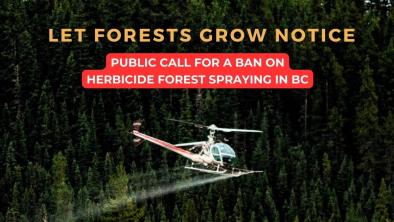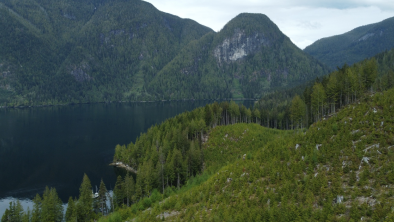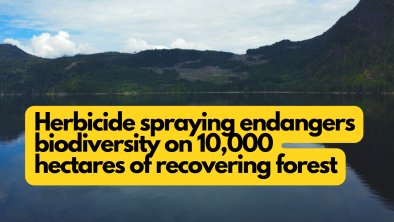Vancouver bans bee-killing pesticide
Vancouver Sun

Vancouver city council has voted unanimously to ban neonicotinoids, a group of pesticides believed to contribute to bee mortality.
Neonicotinoids, or neonics, were developed in the 1990s as a safer alternative to DDT, but they are believed to kill bees by lowering their resistance to infection and weakening their ability to reproduce. In B.C., they are widely used on fruit crops in the Okanagan and the Fraser Valley.
The use of neonics in Vancouver is on the rise, not just by farmers, but by residents, who douse their lawns to combat chafer beetles (nuisance grubs that feed on the roots of grass), according to a city report debated Tuesday by council. But the report also found that non-target insects that pollinate, rest on plants and ingest plant material are vulnerable to being poisoned.
The report says there are other ways to deal with chafer beetles that pose no harm to humans, animals or the environment, including raking, aerating, fertilizing, watering and using nematodes — microscopic roundworms that infect chafer beetles.
Vancouver’s decision comes a week after four environmental groups filed a lawsuit in federal court, alleging that Canada’s Pest Management Regulatory Agency (PMRA) registered neonicotinoid pesticides in the last decade without having acquired the scientific evidence necessary to evaluate their environmental risks, in particular to pollinators.
The groups, The David Suzuki Foundation, Friends of the Earth Canada, Ontario Nature and the Wilderness Committee, want the court to overturn the PMRA’s approval of the pesticides.
Gwen Barlee, a spokeswoman with the Wilderness Committee, said Tuesday that there is a serious delay with Health Canada in moving to ban the pesticides, given the “overwhelming evidence” showing the toxicity to honey bees and other pollinators.
Barlee said there is a 12 to 38 per cent loss in honey bee population every winter in B.C. She said there are many contributing factors, including loss of habitat and mites, but added that research has shown that lethal impacts to bees caused by neonics range from impaired memory and less success in breeding, to reduced resistance to illness.
“The Wilderness Committee is calling for a complete ban. … I really believe we’ll have it banned within five years in Canada,” said Barlee.
SFU researcher and bee guru Mark Winston says the scientific case for pesticides killing off wild and honey bees is very strong, and he applauds Vancouver in banning neonics, which he says are unnecessary except in extreme cases.
“We overuse pesticides. There’s a huge fallacy in policy making that the only way we can feed the world is by using pesticides, and that doesn’t stand up to the data. Organic and sustainable systems are as close to or as productive as pesticide farming. So we really need to be building policy around data than around the proclamation of lobbyists,” he said.
“We have to think about our values. Is it more important to have a perfect lawn or preserve the bees?”
Winston said B.C. could still have a thriving fruit industry if farmers switched to organic practices. He said typically it is a five-year transition to organic farming.
Ontario has moved to reduce use of neonics on corn and soybean crops by 80 per cent following an unprecedented bee die-off in 2012 and 2013. France and several other countries in the European Union have already opted to heavily restrict use.
Health Canada’s Pest Management Regulatory Agency controls which pesticides are permitted to be sold in the country. The agency says it is aware of reports in scientific literature suggesting that exposure to neonics may impact pollinator health.
“Health Canada is actively reviewing the emerging body of scientific and monitoring data and is conducting an extensive re-evaluation of all agricultural uses of neonicotinoid pesticides in cooperation with the U.S. Environmental Protection Agency and the California Department of Pesticide Regulation,” said Rebecca Gilman, a spokeswoman for Health Canada.
“The results of the re-evaluation will be used when determining if further regulatory action is necessary in Canada.”
The Vancouver ban on neonicotinoids will come into effect on July 26.
Read the original article here


